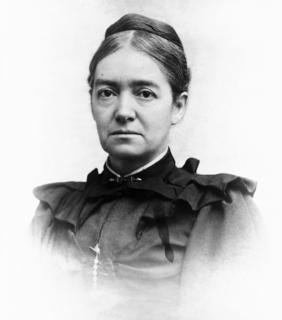Цитата Генри Дэвида Торо
Лодочники, казалось, вели легкую и довольную жизнь, и мы подумали, что сами должны предпочесть их работу многим профессиям, которые гораздо более востребованы. Они предполагали, как мало обстоятельств необходимо для благополучия и спокойствия человека, как безразличны все занятия и что любое занятие может показаться благородным и поэтичным в глазах людей, если им заниматься с достаточной жизнерадостностью и свободой.
Темы цитат
После
любого
появления
Бытие
Плавучесть
Обстоятельства
Удовлетворенность
Легкая
занятость
Глаза
Мало
свободы
Насколько
равнодушны
Ведущий
образ жизни
Мужчина
Много
майских
мужчин
Больше
всего
необходимо
Благородные
Мы сами
Поэтические
Предпочитаем
профессии,
которыми занимаемся
Кажется
Спокойствие,
следует
добиваться
Достаточное
Предлагаемая
мысль
Хорошо
Благополучие,
которое
Связанные цитаты
Целый большой, гигантский мир, полный мужчин. Мужчины с голубыми глазами. Карие глаза. Зеленые глаза. И неописуемые оттенки между ними. Высокие мужчины. Короткие мужчины. Худые мужчины. Построенные мужчины. И все их комбинации. Приятные мужчины (так я слышала, но никогда толком не видела). Скупые мужчины. Приличные мужчины, неприличные. И кто знает, что лучше всего иметь, держать, любить? Я бы сказал, что в мире так много мужчин, что стоит попробовать парочку. Сотрите это. Больше, чем несколько. Много много. А потом еще несколько. И, может быть, после многих лет исследований вы найдете то, что не стоит отбрасывать. Но эй, самое интересное в рыбалке.
Если бы только смертные узнали, как велико обладание божественной благодатью, как прекрасно, как благородно, как драгоценно. Сколько богатств таит оно в себе, сколько радостей и наслаждений! Никто не стал бы жаловаться на свой крест или на беды, которые могут с ним случиться, если бы познал весы, на которых их взвешивают, когда раздают людям.
Та самая гибкость и легкость, которые делают мужскую дружбу столь приятной, пока она продолжается, делают ее еще более легкой для разрушения и забвения. И человек, у которого мало друзей или тот, у кого их дюжина (если есть на свете кто-нибудь столь богатый), не может забыть, на каком зыбком основании покоится его счастье; и как в результате одного-двух ударов судьбы -- смерти, нескольких легких слов, клочка гербовой бумаги, блестящих глаз женщины -- он может через месяц лишиться всего.
Мы полны решимости защищать индивидуальную свободу вероисповедания. Эта свобода должна включать в себя ребенка, а также родителя. Свобода, за которую мы стоим, — это не свобода веры, какой бы нам ни хотелось,... не свобода уклоняться от ответственности, ... а свобода быть честным в словах и поступках, свобода уважать целостность своих мыслей и чувств, свобода вопрос, исследовать, пробовать, понимать жизнь и вселенную, в которой жизнь изобилует, свободу искать везде и всюду, чтобы найти смысл Бытия, свободу экспериментировать с новыми способами жизни, которые кажутся лучше, чем старые.
Именно тогда, когда дела идут тяжелее всего, когда жизнь становится особенно трудной, возникает наибольшая потребность в наличии фиксированной цели, в воздушном замке, который внешний мир не может разрушить. Когда мало утешений приходит извне, тем более необходимо иметь источник, который можно черпать изнутри. И мужчина или женщина, у которых есть звезда, к которой нужно стремиться, не могут быть сбиты с пути, как бы мир ни старался, как бы далеко не шли дела.
Мы неразумно желаем отделить жизненные блага от тех зол, которые с ними связано провидением, и ухватить выгоды, не заплатив той цены, за которую они нам предлагаются. Каждый человек желает быть богатым, но очень немногие обладают способностями, необходимыми для того, чтобы внезапно сколотить состояние либо за счет новых открытий, либо за счет превосходства в навыках в любом необходимом деле; и среди низшего понимания многие хотят твердости и трудолюбия, необходимых для регулярной прибыли и постепенных приобретений.
В Америке не появилось ни одного человека с гением законодательства. Они редки в мировой истории. Есть тысячи ораторов, политиков и красноречивых людей; но оратор еще не открыл рта, чтобы говорить о том, кто способен решить столь насущные вопросы дня. Мы любим красноречие само по себе, а не за какую-либо истину, которую оно может изрекать, или за какой-либо героизм, который оно может вдохновить. Наши законодатели еще не усвоили сравнительной ценности свободной торговли и свободы, союза и честности для нации.
Ибо такова природа людей, что, хотя они могут признать многих других более остроумными, или более красноречивыми, или более учеными, все же они вряд ли поверят, что есть много таких же мудрых, как они, потому что они видят свой собственный ум под рукой, и другие мужские на расстоянии. Но это доказывает скорее, что люди в этом отношении равны, чем неравны. Ибо обычно нет большего признака равного распределения какой-либо вещи, чем то, что каждый человек доволен своей долей.
Еще раз Сентябрь поразился тому, что даже Додо знает, кем она хочет стать, когда вырастет. Она просто не могла подумать, что она сама могла бы сделать. Сентябрь ожидала, что судьбы, как она думала о профессиях, просто ложатся на человека, как венец, и с тех пор никто не спрашивает и не беспокоится об этом, будучи уверенным в своей пользе в этом мире. Вот только почему-то ее корона еще не появилась. Она надеялась, что он поторопится.
Я считаю, что в сознательном существе, включая многих животных, а также нас самих, происходит что-то, что не является вычислительной деятельностью. И вообще быть сознательным — это не то качество, которым когда-либо будет обладать компьютер как таковой — как бы ни был он сложен, как бы хорошо он ни играл в шахматы или во что-то подобное.
Какими бы знатными, умными, образованными, добродетельными, богатыми, утонченными ни были современные женщины, они представляют собой политический класс ниже любого мужчины, как бы низкородны они ни были, как глупы, как невежественны они ни были. , как порочно, как бедно, как жестоко. Нищий в богадельне может голосовать; дама, которая посвящает свои филантропические мысли тому, чтобы сделать эту богадельню пригодной для жизни, не может. Бродяга, выпрашивающий холодную еду на кухне, может голосовать; наследница, которая его кормит и финансирует университеты, не может.
... Наше индивидуальное благополучие тесно связано как с благополучием всех других, так и с окружающей средой, в которой мы живем... Каждое наше действие, каждый наш поступок, слово и мысль, какими бы незначительными или незначительными они ни были. кажется, имеет значение не только для нас самих, но и для всех остальных.
В жизни каждого человека случаются внезапные переходы чувств, которые кажутся почти чудесными. В тот же миг, как будто какой-то волшебник коснулся неба и земли, темные тучи растворились в воздухе, ветер стих, и на смену буре пришла безмятежность. Причины, вызывающие эти изменения, могут действовать в нас давно, но сами изменения происходят мгновенно и, по-видимому, без достаточной причины.


































